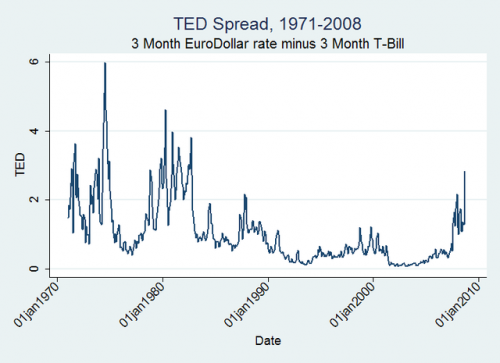Shareholder Lawsuits
The general utility of shareholder lawsuits has confused me for quite some time. Way back in the blogging stone age of 2006 I wrote a guest post at Overlawyered that said in part:
But from a philosophical standpoint, shareholder suits have never made much sense to me. While I can understand the shareholders of the company suing a minority shareholder who might be enriching themselves disproportionately (e.g. Rigas family at Adelphia), suits by shareholders against the company they own seem… crazy.
Any successful verdict for shareholders against the company would effectively come out of the pockets of the company’s owners who are.. the shareholders. So in effect, shareholders are suing themselves, and, win or lose, they as a group end up with less than if the suit had never been started, since a good chunk of the payout goes to the lawyers. The only way these suits make financial sense (except to the lawyers, like Bill Lerach) is if only a small subset of the shareholders participate, and then these are just vehicles for transferring money from half the shareholders to the other half, or in other words from one wronged party that does not engage in litigation to another wronged party who is aggressively litigious. Is there really justice here?
OK, you could argue that many of these shareholders are not suing themselves, because they are past shareholders that dumped their stock at a loss. But given these facts, these suits are even less fair. If these suits are made by past shareholders who held stock (ie, were the owners) at the time certain wrongs were committed, they are in fact paid by current and future shareholders who may well have not even owned the company at the time of the abuses, and who may in fact be participating in cleaning the company up. So these litigants are in effect making the argument that because the company was run unethically when they owned it, they are going to sue the people who bought it from them and cleaned it up? Shouldn’t the payment be the other way around, with past owners paying current owners for the mess they left?
So I found this decision in a case at Sears refreshing:
A federal appeals court on Wednesday put the kibosh on a shareholder antitrust suit against the board members of Sears Holding Corp, finding that the suit only served to enrich the plaintiffs' lawyers.
The ruling from the Chicago-based U.S. Court of Appeals for the 7th Circuit marks the latest victory for Ted Frank, of the Center for Class Action Fairness, who argued that the suit was an abuse of the legal system and conferred no benefit on Sears shareholders at large. The 7th Circuit agreed.
"The only goal of this suit appears to be fees for the plaintiffs' lawyers," Judge Frank Easterbrook wrote for a unanimous three-judge panel.
Several law firms, including Vianale & Vianale, filed the proposed class action on behalf of two named investors in 2009. The derivative suit accused two Sears directors of holding positions on the boards of several competing companies, in violation of federal antitrust law.
Given the high cost of litigating an antitrust suit, Sears reached a settlement with the investor plaintiffs, agreeing to get rid of one of the directors and pay $925,000 to the investors' attorneys.
Frank, who specializes in challenging class action settlements, argued that the resolution was a raw deal for Sears shareholders, costing them legal fees and a director they had recently re-elected. The deal also would not prevent someone else from filing a copycat suit, given that one of the two targeted directors would remain on the Sears board. What's more, the problem of interlocking boards is usually resolved when the Department of Justice or the Federal Trade Commission asks a company to fix the violation.
Frank, himself a Sears shareholder, asked to intervene in the case to block the settlement, but the Illinois district court refused, finding that the plaintiff investors adequately represented the interests of Frank and the other shareholders.
On appeal, the 7th Circuit panel reached the opposite conclusion, finding the interests to be "entirely incompatible." The panel sent the case back to the district court, with instructions to allow Frank to intervene and to rule in favor of the Sears defendants.
"The suit serves no goal other than to move money from the corporate treasury to the attorneys' coffers, while depriving Sears of directors whom its investors freely elected," Easterbrook wrote.


